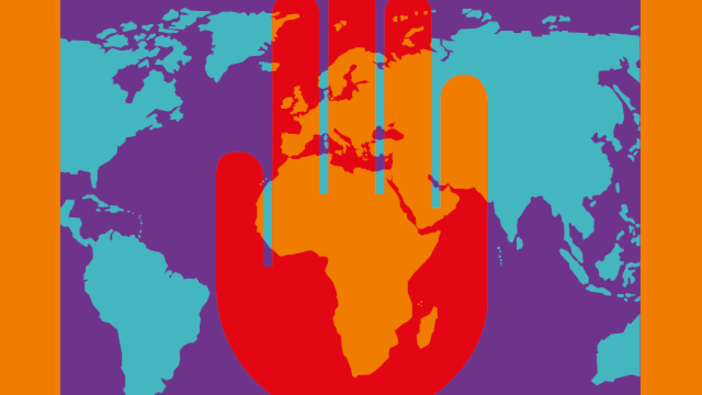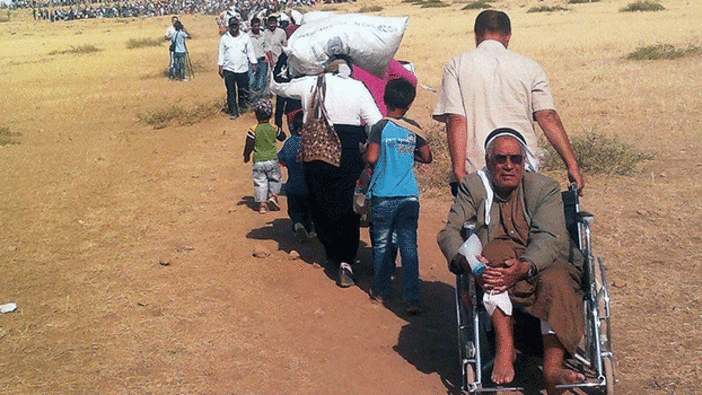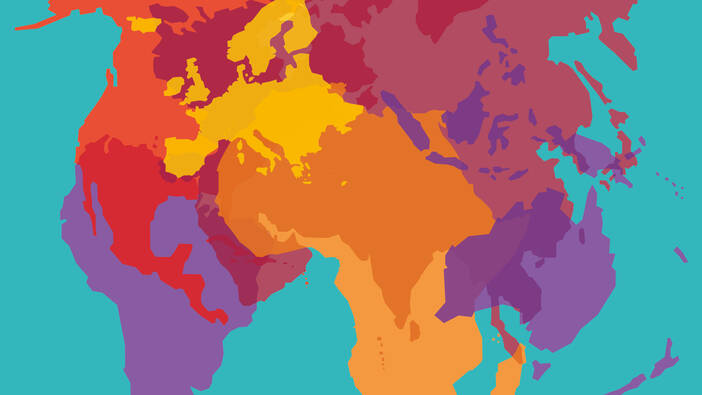![[Translate to en:] Atlas der Staatenlosen [Translate to en:] Atlas der Staatenlosen](/fileadmin/_processed_/f/d/csm_atlas-der-staatenlosen-2_9313778a48.png)
The Stateless Need Rights, Protection, and a Voice
“Invisible.” “Excluded.” “Worthless.” These are just a few of the words stateless people often use to describe themselves. Invisible—the topic of statelessness and stateless people themselves play virtually no role in public discussion. This means that their problems go unheard and remain unresolved. Excluded—stateless people are regarded as not belongingto the societies they live in. This means that they are seen as different or foreign. Worthless—without education and a livelihood it is often difficult to make a meaningful contribution to society.
The french edition can also be ordered as a brochure:
L'Atlas des Apatrides
Faits et chiffres sur l‘exclusion et les déplacements forcés
Commandez ici
There Are Many Reasons for Statelessness
It is difficult to determine how many people are stateless worldwide because the data are so incomplete. Germany also has no specific procedure for determining the extent of statelessness. In its October 2019 mid-term report, the IBelong Campaign to end statelessness—launched by the UN Refugee Agency (UNHCR) in November 2014—called for improvements to the data situation. The campaign aims to identify and protect stateless people by ending their current statelessness status and preventing new cases from arising.
This Atlas of the Stateless not only aims to make this invisible issue more visible, but also to show how solutions are possible for each of the situations and problems it presents. We have not attempted to be comprehensive in our coverage. Rather, we hope to draw attention to the many facets of this diverse topic. People become stateless for many different reasons: deprivation of citizenship, flight or expulsion, religious discrimination, or the consequences of a nomadic way of life. The effects on those affected are as varied as they are far-reaching. Stateless people are especially vulnerable because no state protects them, and they lack access to basic rights.
But measures exist to end statelessness. Children would not have to be born stateless if births were registered where they occur. The elimination of gender discrimination from citizenship laws would make it possible for women to pass on their nationality to their children wherever they are in the world, thus protecting them from statelessness. The plight of stateless migrants could be adequately addressed by easing their naturalization in their countries of residence and revoking their status as stateless.
The basic prerequisite for resolving the problem is more, and better-quality, data about stateless population groups. In addition, self-help organizations of those affected, supported by civil society, should play a much stronger role, along with government institutions and organs of the United Nations. But the most relevant issue is the access of stateless persons to their rights. One approach for this could be the concept of “global social rights”—the same rights for all people, regardless of their origin, place of residence, gender, skin colour or cultural background. This is about human rights to which everyone is entitled. Our society and the international community are far from ensuring that the “right to rights” is a guiding principle in everyday consciousness and political action. The Rosa-Luxemburg-Stiftung has worked intensively on this topic for several years. This Atlas once again reminds us of how important it is.
Dr. Dagmar Enkelmann
Chair of the Executive Board, Rosa-Luxemburg-Stiftung


